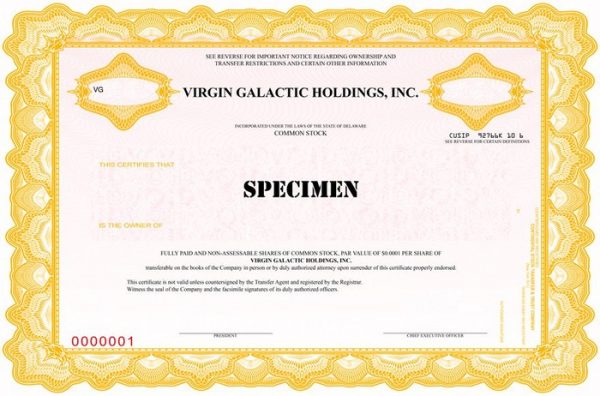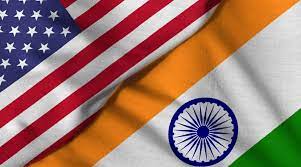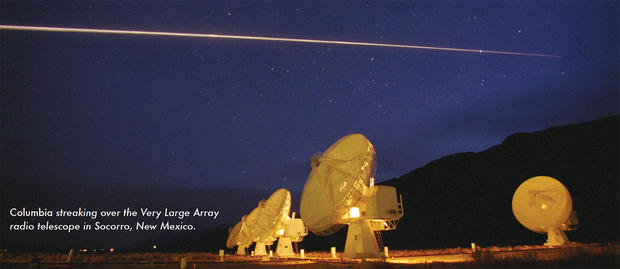4 Things to Know About New Space Company Virgin Galactic – Motley Fool
At some point in the not-too-distant future, the global space industry will be worth $1.1 trillion — maybe as much as $1.8 trillion — according to the space analysts at investment bank Morgan Stanley.
And now there’s a pure-play way to invest in that: Virgin Galactic (NYSE:SPCE), shares of which began trading last week.
We first told you about space tourism company Virgin Galactic’s plans to go public — without actually doing an IPO — back in July. Taking an unconventional route to the public markets, Virgin Galactic would first sell half its shares to publicly traded shelf-company Social Capital Hedosophia Holdings (SCH), then reverse merge into SCH, and label the entire combined company “Virgin Galactic.”
Voila! Instant virtual IPO.

Image source: Virgin Galactic.
Now that Virgin Galactic is public and its shares have had a few days to trade around a bit, we thought you might like to know a bit more about “the world’s first and only publicly traded commercial human spaceflight company” (their words, not mine).
1. Investors don’t like it
Virgin Galactic shares jumped as much as 10% on the day of the name change, but ended the day right back where they began at $11.79 per share — and it’s been all downhill since. The day after “Virgin Galactic” became publicly tradable, shares lost 7% of their value… then 4% more the day after that… and 11% the day after that!
The good news is that by the end of the week, short-sellers apparently decided they had made enough money, and bought back some shares. But in the end, Virgin Galactic stock was down 18% in its first week of trading.
Hardly the result Sir Richard Branson — or investors — had hoped for.
2. Virgin Galactic has almost no revenue, but lots of losses
Why are investors starting to sour on Virgin Galactic stock? Part of the reason may be that they’ve finally gotten a good, close look at its numbers. You see, the day after it began trading, Virgin Galactic filed an “8-K” report with the SEC, which included an “unaudited, pro forma, condensed” review of some of its financial information.
Among the revelations from this document: Virgin Galactic has almost no revenue — but lots of losses.
Admittedly, coming from a company that has yet to make its first commercial spaceflight, this shouldn’t be too surprising. But for investors with only a passing familiarity with Virgin Galactic’s status, the numbers might have come as a bit of a shock.
Over the first six months of 2019, this company with an $1.8 billion market capitalization (that’s S&P Global Market Intelligence‘s latest estimate) has booked only $2.4 million in sales — and racked up $96.4 million in net losses.
3. Virgin Galactic has lots of cash
The good news is that for the time being at least, Virgin Galactic is in a good position to absorb these losses as it awaits its first commercial spaceflight (now expected to take place sometime in 2020).
Thanks largely to the cash that came with SCH’s investment, Virgin Galactic now boasts a $536.6 million bank account, and no long-term debt. Almost all of its debts are short-term in nature, and the bulk of them ($81.1 million) consist of customer deposits — obligations the company should quickly begin satisfying once it begins flying tourists to space commercially.
4. Boeing loves Virgin
That’s about it from the perspective of “dollars-and-cents” revelations from the report. No mention of free cash flow. No guidance for what to expect the numbers to look like going forward. (As I mentioned, Virgin gave us only an “unaudited, pro forma, and condensed” snapshot.) But one other revelation bears examination.
After the merger, Sir Richard Branson, in the form of “Vieco US,” controls 58.8% of Virgin Galactic’s shares. Shareholders of what used to be SCH own 40.2%. The remaining 1% of Virgin Galactic’s shares, believe it or not, are now owned by Boeing (NYSE:BA) — which, having its own space business, might ordinarily be considered a Virgin Galactic competitor! Boeing’s venture arm HorizonX, you see, made a $20 million investment to take a 1% share in Virgin Galactic when it went public.
And this is interesting because it gives Boeing insight into the company. Boeing can use that to learn how good of a business space tourism might become without making investments of its own. It also gives Boeing insight into any advances Virgin Galactic might make in commercial air transport.
After all, beginning next year, and for years to follow, Virgin planes will be making regular flights at ultra-high altitudes and hypersonic velocity. In so doing, they’re bound to learn interesting things about how passenger airplanes perform at very high speeds, in very thin atmospheres. Indeed, Virgin Galactic’s CEO says this will be an “exciting part” of Virgin’s business in future years. Over and above the excitement of flying into space, the path Virgin spacecraft take to get to space could blaze a new trail for intercontinental passenger transport, cutting travel times between Los Angeles and Tokyo from 11 hours … to just two hours.
(Commenting on this aspect of the business earlier this year, investment bank UBS opined that while Virgin Galactic’s primary reason for being — space tourism — might become a $3 billion industry a decade from now, hypersonic business travel could be worth as much as $20 billion annually.)
Unsurprisingly, this interests Boeing, too. Last month, Boeing HorizonX Ventures head Brian Schettler told CNBC that Boeing intends to use its Virgin Galactic investment “to explore” not just “commercial access to space,” but also “high-speed mobility” of commercial airplanes as well.
As Virgin Galactic spins up its business and prepares to issue its first earnings report, investors might want to “explore” this aspect of Virgin Galactic’s business model as well.






